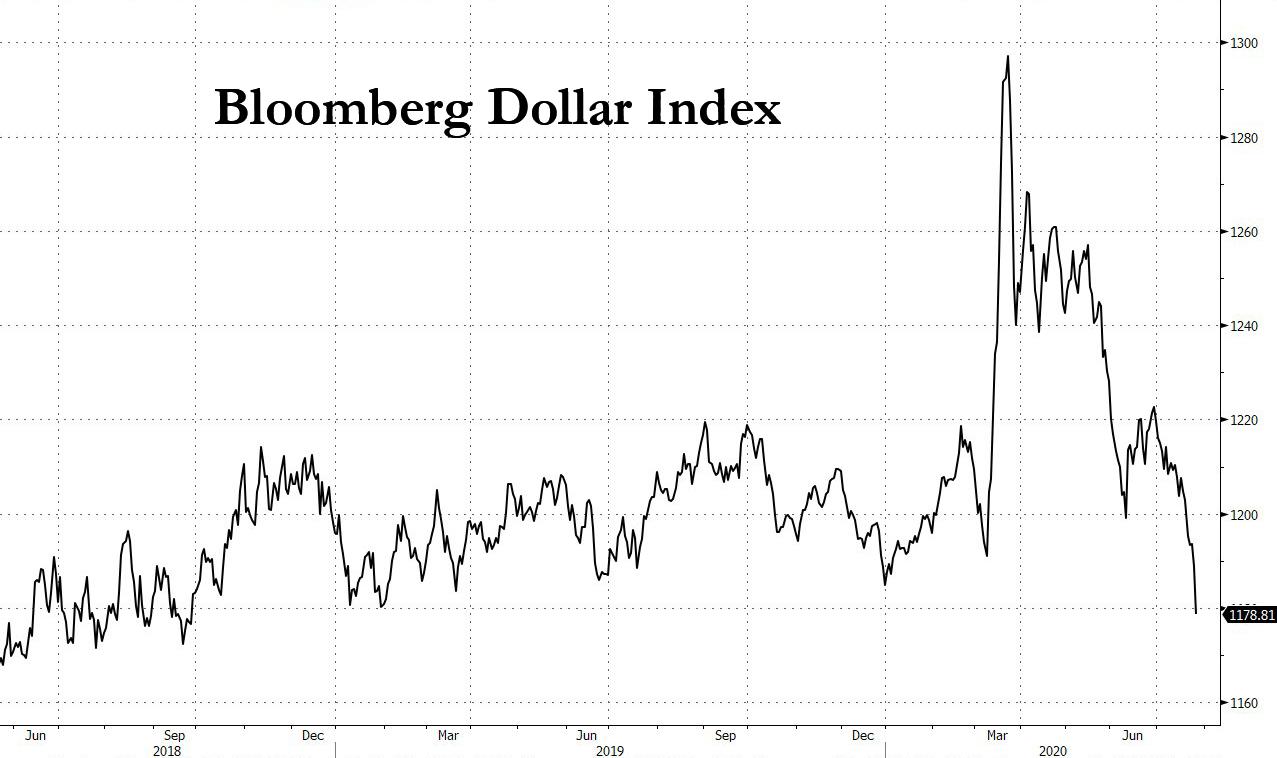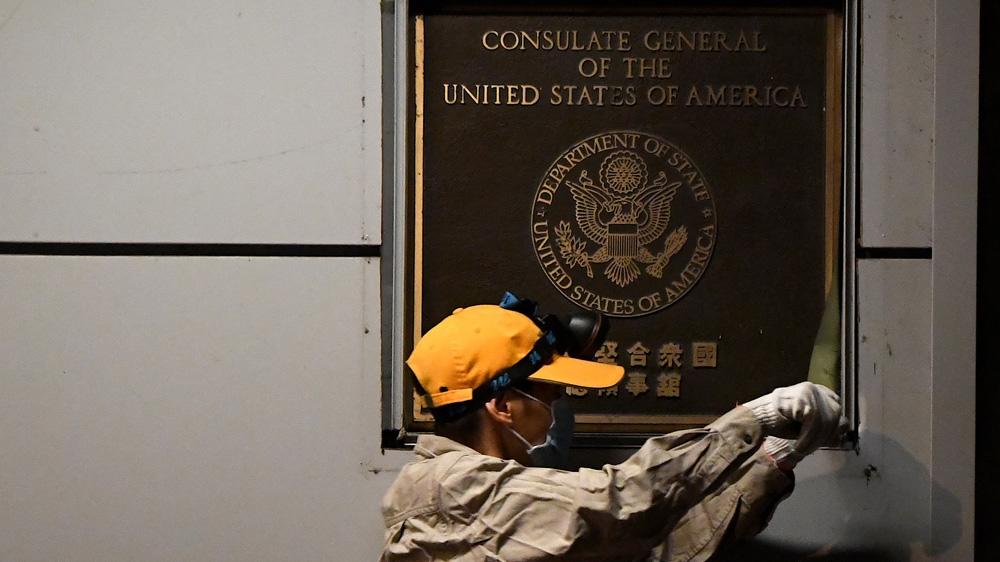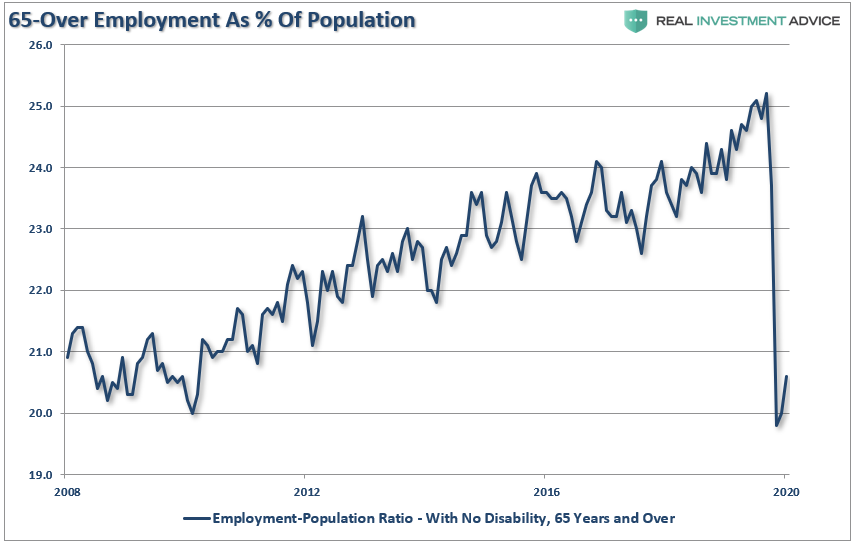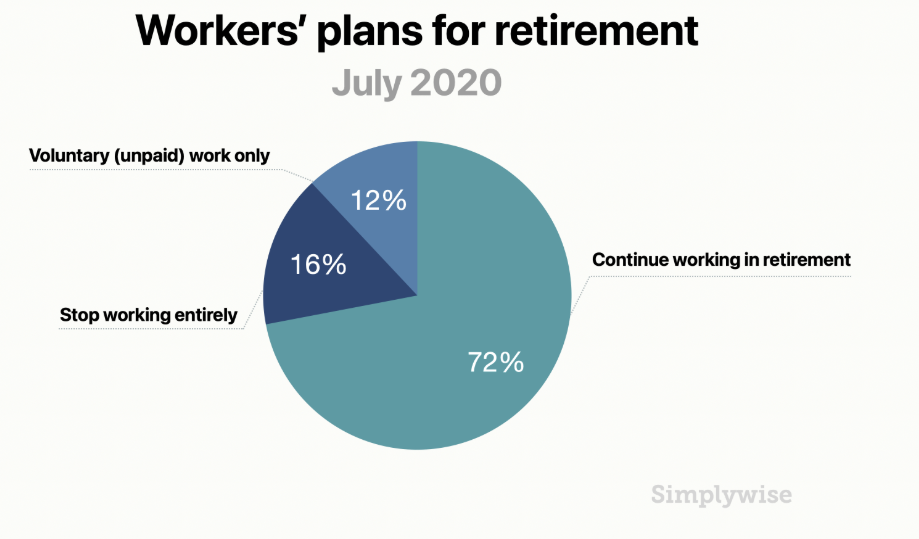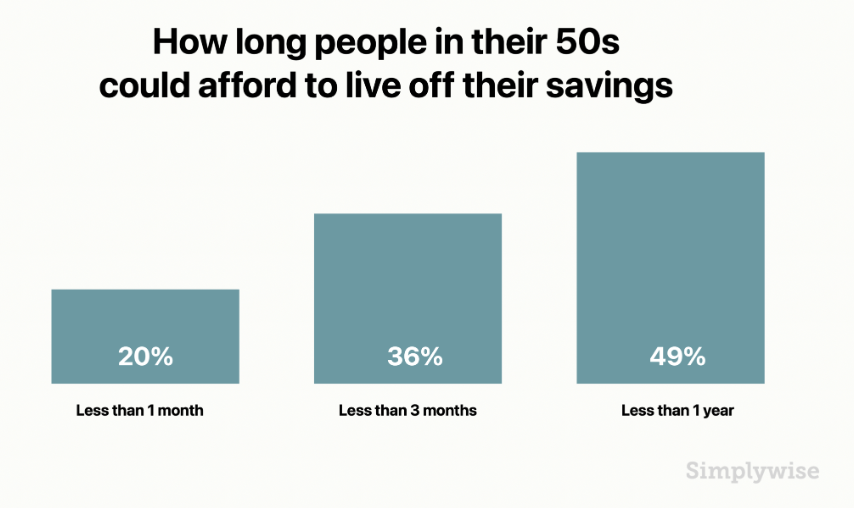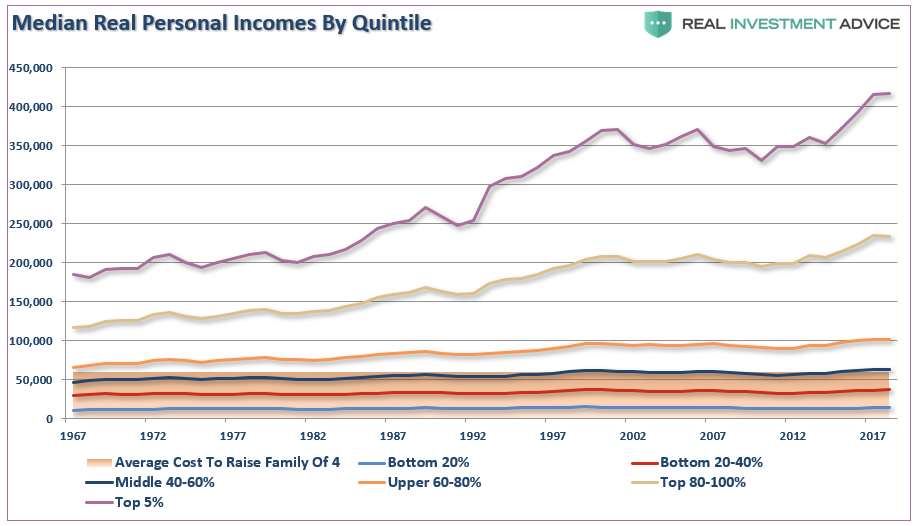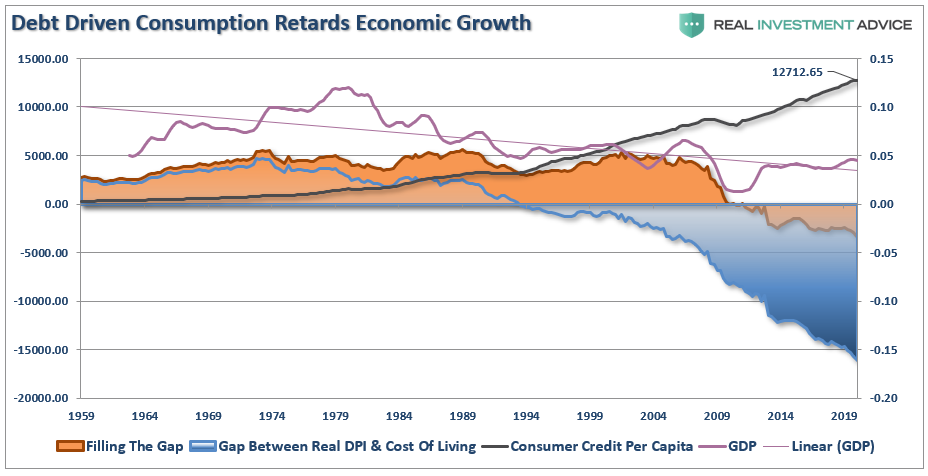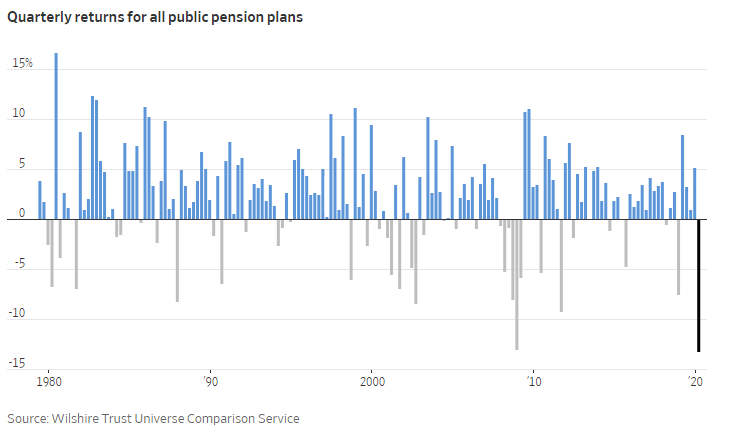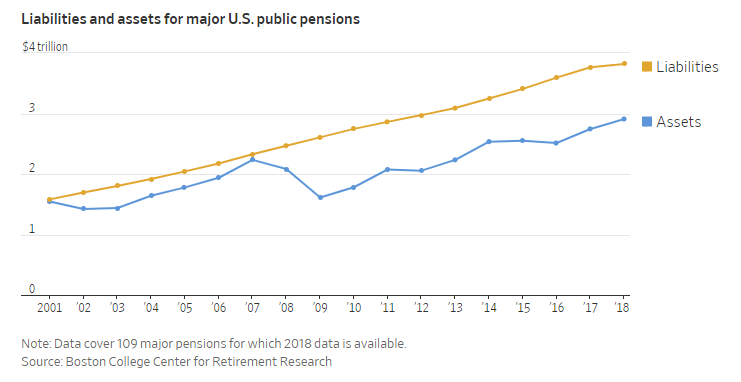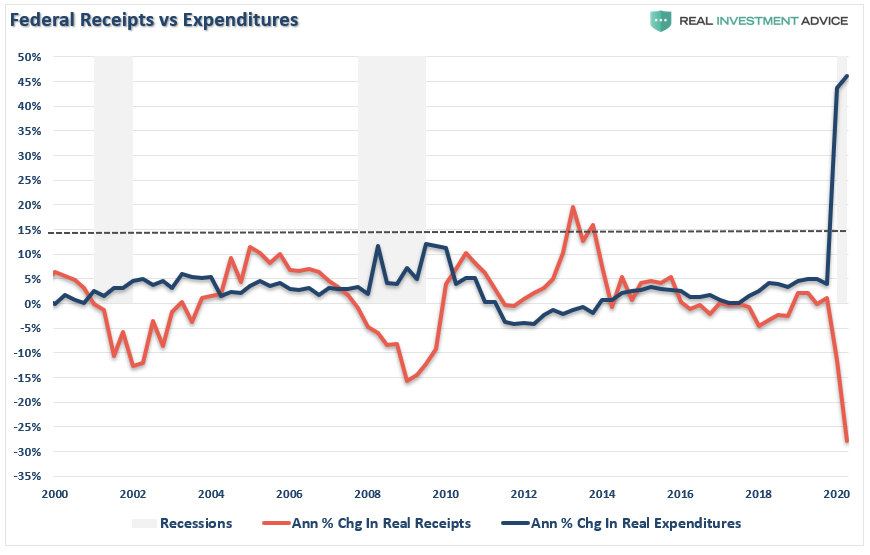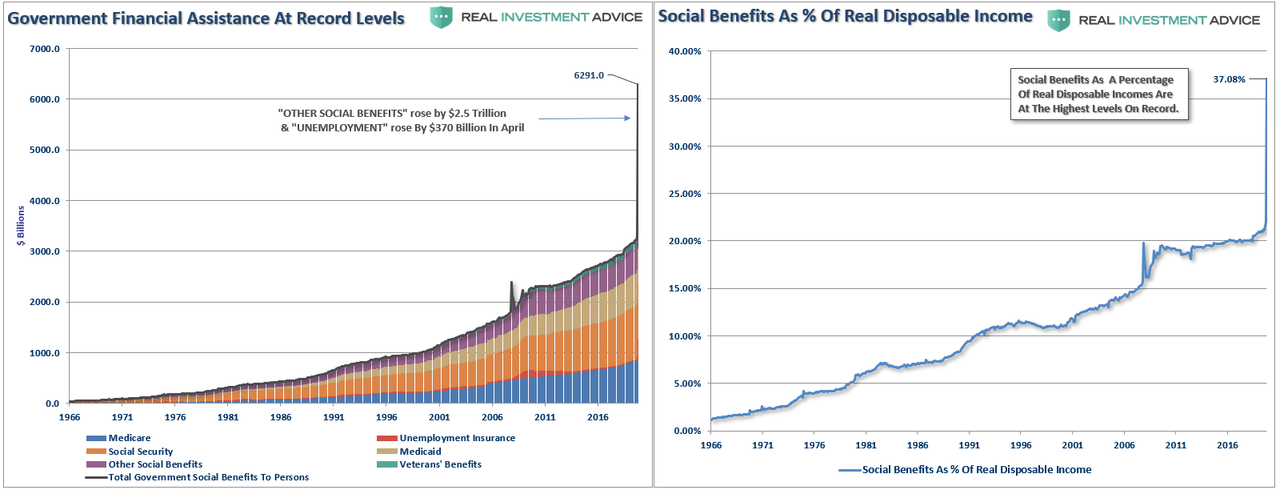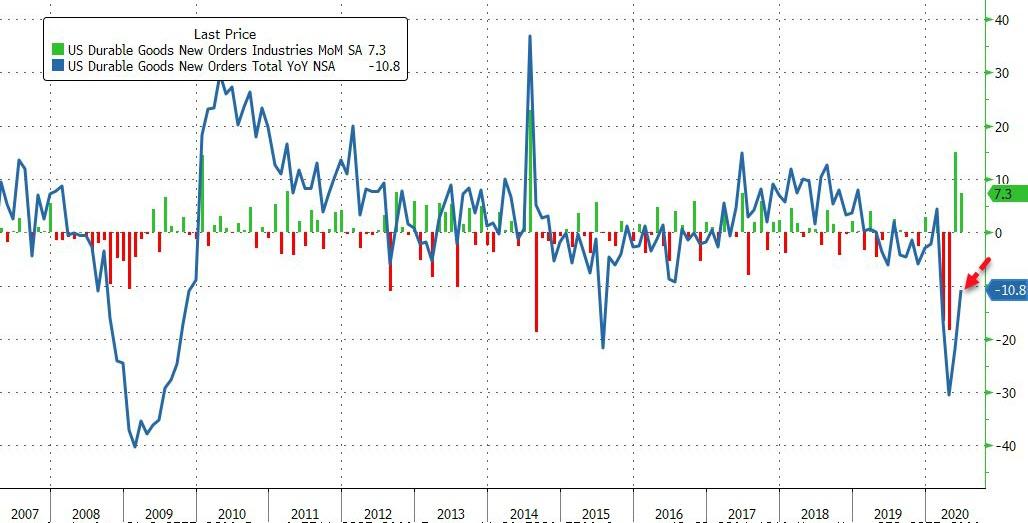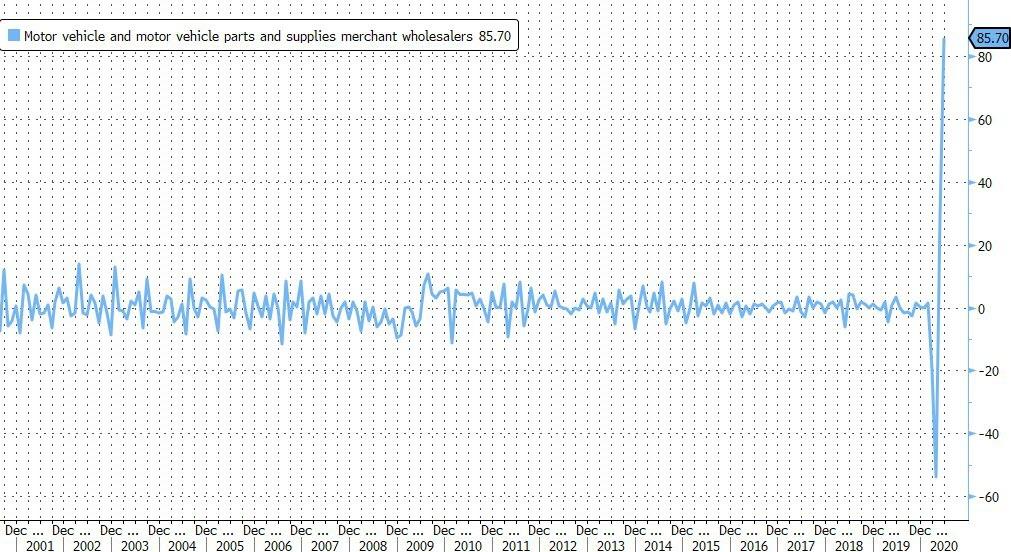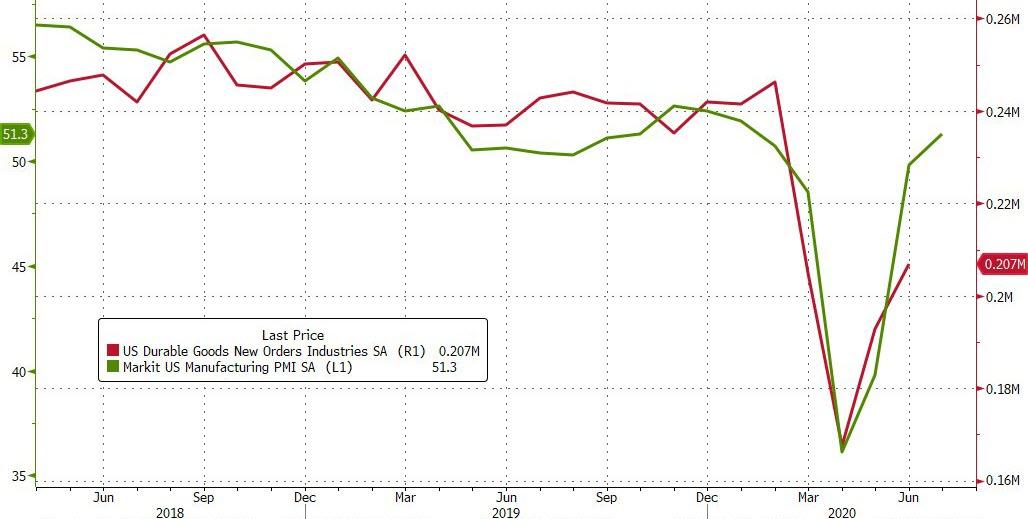Rabobank: The Story Of The Crashing Dollar Is Very Exciting… And Desperately Inaccurate
Tyler Durden
Mon, 07/27/2020 – 09:25
By Michael Every of Rabobank
If there’s one clear ‘trend’ at the moment that gets market tongues wagging and teenage scribblers scribbling, it’s that the USD is in trouble. “Down goes the dollar,” say the market press headlines. “And it can go further.” Indeed, from a technical point of view we are also approaching some key trend lines too and already saw a ‘death cross’ on Friday as the 50-day moving average went through the 200.
How exciting this all is. And how desperately inaccurate.
Yes, it’s undeniable that the broad USD index, or DXY, is on the back foot again today, and has been for months, and it is down 3% in July alone. However, DXY is about as much use as a chocolate teapot. It’s overwhelmingly skewed to just a few major crosses such as EUR/USD and USD/JPY, which makes it institutionally useful, perhaps, but an irrelevance for a huge swathe of the globe. Let’s take a year-to-date snapshot of some currencies to underline what I mean.
- EUR: as I type, EUR is at 1.1706. EUR started 2020 at 1.1213, so that’s a genuine gain. Not bad for a bloc seeing the second-largest economy leave the EU with no guarantee of anything other than trade-shattering WTO terms by year end; or for a tourism-focused region as Spain sees virus cases flare up again, prompting several countries to reimposed lockdown for those returning from it.
- JPY: is at 105.6 when it started at 108.6. Again, that’s a real gain. Not a huge one, but a gain.
- GBP: is at 1.2840 despite all the Boris-ness that this current government brings with it (no trade deal with the EU? Well we will have one with the US. No trade deal with the US? Well, we will have one with India. No trade deal with India? Look, the Premier League and cricket have re-started!) GBP started the year at 1.3257. Such a USD slump.
- CNY: Of particular focus here, and standing at 7.0 having started the year at 6.96. What a devastating plunge in the greenback vs. the currency of the world’s second-largest economy. Devastating. (And as the US consulate in Chengdu closes today.)
- AUD: is at 0.7137, which makes no sense to me, but against the 0.7037 at the start of the year. Again, not much of a fall.
- NZD: stands at 0.6675 vs. 0.6740 – so the USD is still up year to date despite Kiwi virus success.
- INR: is at 74.7 vs. 71.38 at the beginning of 2020. That’s a sizable USD gain.
- IDR: sits at 14,563 vs. 13,866. Again, a big USD appreciation.
- BRL: is 5.23 vs. 4.02, a staggering USD gain.
- ARS: is at 71.89 vs. 59.87, again a total slump in the local currency.
- MXN: is 22.22 vs. 18.92 – so chalk up another USD ‘win’.
- ZAR: stands at 16.57 vs 14.00, showing the same trend.
In short, this is mainly a DXY story driven by risk-on in EUR and risk-off in JP, and not a reflection of broader USD weakness over the year. Of course, this overlooks the fact that in all the cases above USD has been far stronger than it is now: AUD was at 0.55 briefly, and many of the others were equivalently weaker too at one point. Does this really mean the USD is in trouble though? Hardly! We are just seeing some recent excess wound back – and the question is if it is temporary or not. And this USD weakness is alongside the Fed promising to buy everything that moves, or doesn’t, and with fiscal deficits as far as the eye can see.
As such, when we see that in Washington DC another USD1 trillion stimulus bill that will swap USD600 weekly extended unemployment benefits for one equivalent to 70% of salary is being prepared (presumably those in DC liked my lyrics to ‘Suicide is Painless’ from Friday?), then the short term pressure on USD may continue. Yet don’t think for a moment that there won’t then be a round of further mega stimulus needed everywhere else too – because it will. Jobs are gone and aren’t coming back. Many supply chains are moving and aren’t coming back. Some capital flows will soon shift and won’t come back either. All of this is going to lean positive for USD, and a time when the greenback is already doing well year-to-date vs. most of the globe, geographically.
And then we come to geopolitics. Forget about Chengdu: that’s done. Read the New York Times story from the weekend which recaps what has been going on and argues that the China hawks in the White House are, as I had suggested would happen, doing all they can to burn bridges to reach a point of no return in US-China relations to ensure there can be no détente-style backsliding under a potential Biden administration. On that note, I repeat the question: what do you do on China in your lame-duck period in office if you are Trump and you lose the election? Exactly.
And read the report in The Australian which notes that major defense strategists around the world last week undertook a “risk assessment” of potential military conflict between China and the US: they rate conflict in the next 12 months as “likely”; over the next two years as “highly likely”; and over the next three years as “almost certain”.
Do you really think now is the time to be selling USD, because a moving average says so, or for using this dip to buy them and hold them tightly? I guess it depends if you think nobody else will require another huge stimulus package they can’t afford relative to the US or not. And it depends on if you believe those in market-facing jobs in air-conditioned offices/at home have a better grasp of the likelihood of US-China conflict happening than the people who are involved with war professionally: your choice is PowerPoint vs. Power and ‘Death crosses’ vs. Crossings and Death.
Something to consider as the teenage scribblers who are filling in because they don’t need to go on holiday with their kids try to fill the market headlines while we wait for the Fed, for the new US stimulus package, and for the first look at Q2 GDP; and all that as we are now just 99 days to the US election.
via ZeroHedge News https://ift.tt/3g5KluK Tyler Durden
